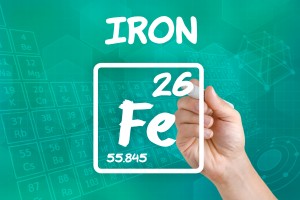-
TUESDAY Q & A: Both too much and too little iron have potential to lead to health concerns
DEAR MAYO CLINIC: I'm a 40-year old woman, and I’ve noticed that many multivitamins for women contain iron. Should all women take extra iron? Is it safe to do so? What are the side effects of taking a daily iron supplement?
ANSWER: Not having enough iron in your body — a condition known as iron deficiency — is a common problem for women, especially before menopause. But that does not mean all women need an iron supplement. Just as too little iron can cause problems, too much iron in your body can lead to health concerns, as well. To make sure it’s right for you, talk to your doctor before you take an iron supplement.
Iron is a mineral that helps the body make red blood cells. Without enough iron, the body can’t produce the number of red blood cells it needs. This condition, called iron deficiency anemia, is a concern because red blood cells carry oxygen to the body’s tissues. Without enough red blood cells, the body may not be able to get enough oxygen to stay healthy.
Women tend to be at risk for low iron during their child-bearing years because their bodies use and lose a good deal of iron through pregnancy, breast-feeding and menstruation. With that in mind, the recommended daily intake of iron for women ages 19 to 50 is 18 milligrams. After a woman stops menstruating, the requirement goes down considerably to about 8 milligrams of iron a day.
The best way to get the iron your body needs is in your diet. Your body absorbs more iron from meat than it does from other sources, so red meat, pork and poultry are good choices if you’re trying to increase your iron.
Other foods rich in iron include beans, dark green leafy vegetables like spinach, eggs and iron-fortified breads, pastas and cereals. Iron that comes from foods other than meat cannot be absorbed into your body as easily as iron from meat. Citrus fruits can help with iron absorption, though. So if you’re relying mainly on sources of iron other than meat, make oranges, limes or other citrus fruits part of your diet, too.
If you do not get enough iron in your diet and your health care provider recommends it, then taking a daily iron supplement can be a reliable way to get the iron your body needs. Some people do experience side effects from taking iron. More common side effects can include constipation or diarrhea, leg cramps, nausea and vomiting. Your health care provider may be able to offer suggestions for ways you can minimize these side effects and make them less bothersome.
It is important to take an iron supplement only if you need it because extra iron in your body — or iron overload — can also be a problem. When the body has more iron than it needs, that iron is stored in places it doesn’t belong, such as the internal organs. Extra iron can be toxic to those organs, particularly the liver, heart and pancreas; it can damage your joints, as well.
Because both too much and too little iron have the potential to lead to health concerns, getting the right amount of iron is critical for good health. If you are concerned about your iron intake, talk to your doctor. He or she may suggest you have your body’s iron level tested. With those test results in mind, your doctor can help you decide if you need an iron supplement. — Jacqueline Thielen, M.D., Women’s Health Clinic, Mayo Clinic, Rochester, Minn.







